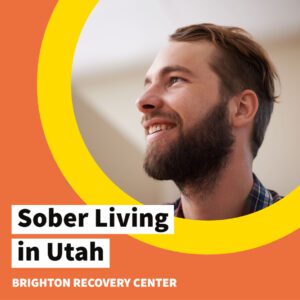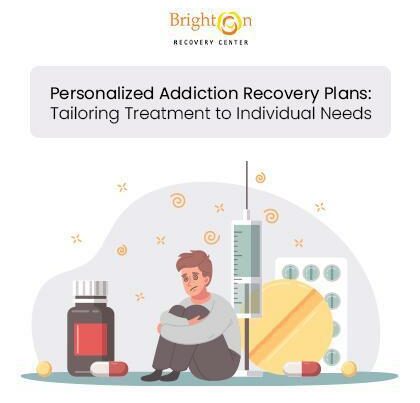
Sober living is a transitional phase between a residential treatment program and regular life. At a sober living facility, people can continue their road to Recovery while in a secure setting with others who share their goals and commitment. For some people, returning to their familiar surroundings might be challenging. Living in a sober community provides an ideal environment for healing, developing healthy habits, exploring spirituality, and learning about healthy relationships.
At Brighton Community Center, we have established a true community in Recovery. Our campus-style facility includes many amenities, such as a free coffee shop, gym, outdoor recreation, open support meetings, onsite staff, mentoring opportunities, and more. Brighton Community Center is not your everyday sober living!
A Sober Living Home: What Is It?
People in addiction recovery may choose to live in sober homes, sometimes called recovery homes, halfway houses, and transitional housing. Members of a sober community agree to maintain their sobriety while residing there and consent to undergo random drug testing.
Residents live by house-established rules. Your bedroom may be private or shared. Several people share common areas like kitchens, living rooms, and gardens.
Although they aid in early Recovery, sober living homes are not the same as addiction treatment facilities. Along with treatment programs, addiction treatment facilities provide comprehensive medical and therapeutic assistance. While staying at a sober living facility, residents may continue group meetings, IOP, or PHP, and individual treatment.
What Are the Benefits of Sober Living?
Brighton’s community center can help you maintain your sobriety during the first stages of rehabilitation. The main benefits include:
- a safe environment
- establishing healthy habits
- fostering healthy relationships
- learning to have fun in sobriety
- structured house rules
- accountability assistance
- supportive community
- easy access to meetings
- additional therapy options like PHP and IOP
A Safe Environment
The brain can undergo physical alterations as a result of chronic substance misuse. Your brain associates the substance with pleasurable events, creating intense impulses to seek out and use the substance. These desires can strike at any time, but they are more likely to do so in reaction to contextual signals that could trigger memories of substance use. Triggers are the name for these signals.
Programs for addiction recovery can help, in some instances, reverse these brain alterations and give you the skills you need to deal with triggers. The trigger-free (or at least trigger-reduced) atmosphere provided by sober living can help prevent relapse. The early stages of Recovery may prevent you from adequately internalizing the recovery skills you learn.
You can strengthen your abilities and establish wholesome habits while residing in a sober living facility, which will help you get ready to resume your regular life. Additionally, it allows you to pinpoint some of your triggers so that, if necessary, you can discuss coping skills with a therapist. Eventually, you will need to be able to deal with your triggers without relapsing into drug or alcohol use.
Establishing Healthy Habits
In a safe setting, sober living residences simulate daily life. This lets residents safely re-experience life’s challenges while forming wholesome routines, structures, and habits.
In sober living facilities, you are surrounded by people who share your objectives; you can exchange ideas, seek guidance, and find inspiration from one another. You might discover that your outlook on life had changed significantly from when you first left a treatment facility. Regular habits established inside sober living will help you uphold your new perspective when returning to a familiar setting.
fostering healthy relationships
Recovery from addiction is a lifelong journey that needs both dedication and encouragement. You will need tools and resources to get through the complex challenges ahead.
The most valuable resource you can have is a network of people willing to help you. Strong networks of mutual support can provide motivation, guidance, respite, and purpose throughout your recovery process. Relationships are strained by addiction and often get lost in the wake. You can learn how to repair and create stronger connections through sober living programs, such as group processing.
Having Sober Fun
An essential part of addiction rehabilitation is learning to enjoy yourself while sober. Wholesome hobbies can help you pass the time, keep you occupied, motivate you, and enable you to concentrate on your sobriety goals.
In sober living, you will meet many people who share your desire to have substance-free fun. You can still get out, explore new hobbies, and find activities you enjoy.
According to research, spending time with people who do not use alcohol or drugs is associated with lower levels of substance abuse, less chance of relapse, and fewer psychiatric symptoms.
What Can You Expect From a Sober Living Home?
Clients in a sober living program are committed to their recovery regimens. Residents typically adhere to house rules, group meetings, and continued therapy.
You do have much freedom when in sober living. You come and go as needed to fulfill your work, school, family, and social needs. This freedom will assist your reintegration into regular life.
However, sober living homes include some guidelines, structure, and accountability to keep you on the path of Recovery.
Sober Living Home Rules
Although each sober living home has its own set of regulations, they may include some of the following :
- No alcohol or drugs are allowed on the property save from a few select prescription medications.
- Taking part in facilities activities, such as meetings and housekeeping
- Must have graduated from a residential treatment center
- Participation in weekly 12-step groups or counseling
- Involvement in drug- and alcohol-screening procedures
- Observing a curfew
- No guests permitted to enter
Social Support in Sober Living
Sober living houses can facilitate recovery sessions and provide social support in addition to a secure and healing atmosphere.
Coaching and process groups can assist in the following:
- finding work
- locating a place to live after leaving the center
- Reconciling with family members or those whom you harmed by your drug or alcohol abuse
- Help you find and attend local 12-step recovery meetings.
- Coach you in relapse prevention and long-term sobriety strategies
- Provide safe, healthy, and fun activities for you to participate in
At Brighton, you will find more than a sober home; you’ll find a community. Community and connection are the keys to healing; start your recovery journey here.



